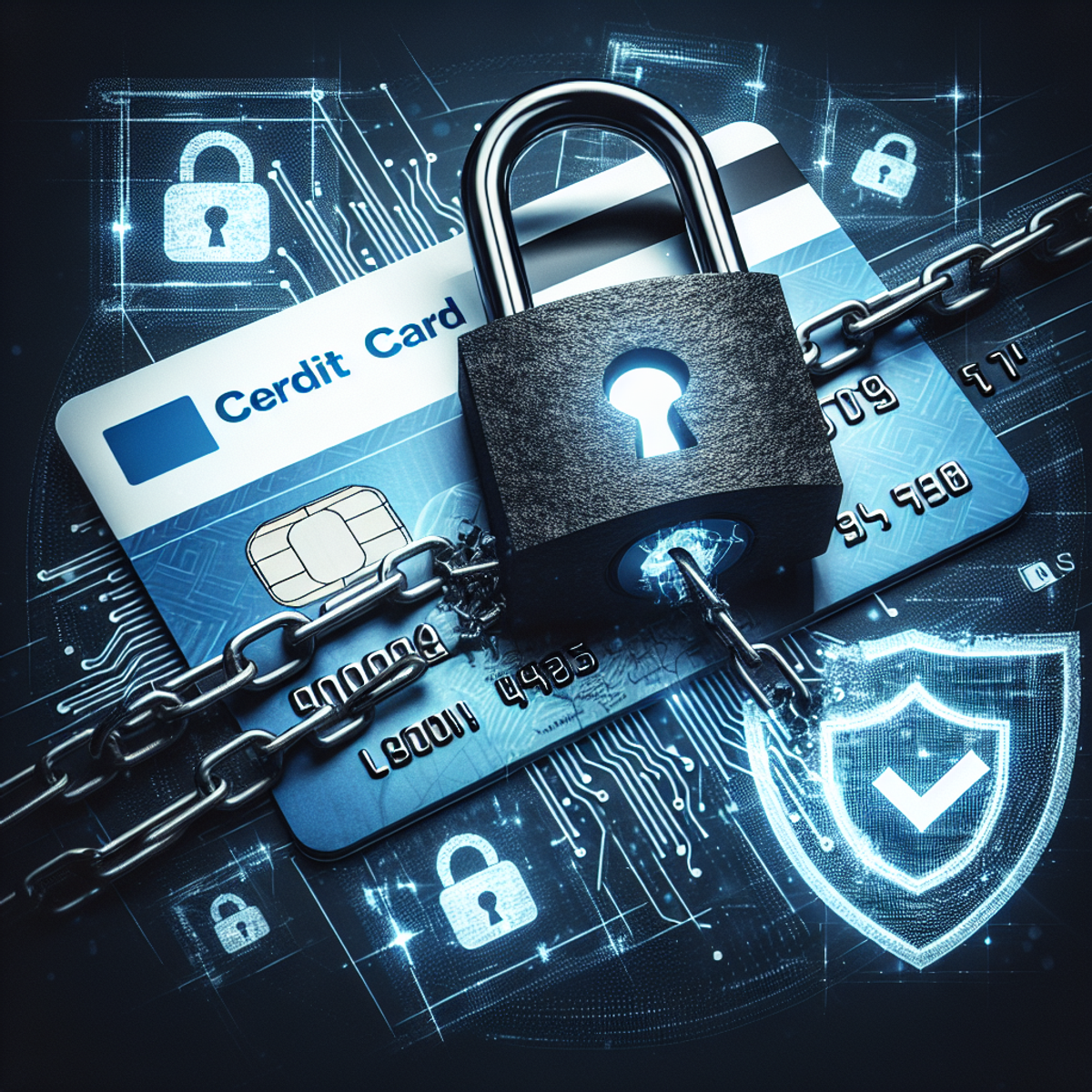Introduction
Credit Card Security and Fraud: When you think about credit card security, what comes to mind? For many, it’s the fear of unauthorized transactions wreaking havoc on their financial lives. This fear isn’t unfounded. Credit card fraud is the most reported type of fraud in America, with scammers using stolen credit card information for online and phone purchases. Introduction
As we progressively shift towards a cash-free environment, the need for credit card security becomes more crucial than ever. Grasping the different methods through which your credit data can be at risk and applying strategies to safeguard yourself is vital.
This piece dives into the realm of credit card fraud and offers practical steps to boost your fraud prevention measures. From comprehending typical tactics employed by fraudsters to employing tech like AI for advanced fraud detection, we’ll cover a variety of subjects intended to strengthen your defenses against credit card fraud.
While no approach is entirely foolproof, being active in managing your credit card security can notably lower the odds of becoming a fraud victim. So, prepare to arm yourself with useful insights and take charge of your credit card’s safety!
1. Unpacking Credit Card Fraud
Credit card fraud, a prevalent issue, is the unauthorized use of another person’s credit card details for personal benefit. The repercussions of this illegal activity can be severe, spanning from financial loss, credit score damage, to emotional distress.
Different Faces of Fraud
Fraud perpetrators employ a variety of methods for carrying out credit card fraud:
- Counterfeit Fraud: This involves the creation of bogus credit cards using stolen account specifics.
- Identity Theft: In this case, fraudsters impersonate the legitimate cardholder to carry out unauthorized transactions or establish new accounts.
- Account Takeover: Here, scammers seize control of an individual’s credit card account and make unsanctioned alterations like updating contact information.
Exploring Card-Not-Present (CNP) Fraud
CNP fraud is rampant in online transactions where the physical card isn’t needed, leading to substantial global losses. To safeguard themselves against CNP fraud, consumers can:
- Shop exclusively on secure websites bearing “https” in the URL
- Use payment services like PayPal or virtual credit cards that disguise their actual numbers
- Regularly monitor statements for any unauthorized charges
The Threat of Data Breaches
A data breach can leave thousands, potentially millions, of credit card numbers exposed. Despite security enhancements by companies such as Mastercard and Discover, breaches still occur. To stay alert, consumers should:
- Enroll for breach notifications from their credit card issuers
- Avail identity theft protection services that offer alerts
- Frequently change passwords and opt for complex combinations
Understanding Phishing Attacks
Phishing is a tactic where scammers send emails mimicking reputable companies to trick recipients into revealing sensitive information. Indicators of phishing emails include:
- Spelling and grammar errors
- Dubious links or email addresses
- Requests for personal or financial details
To fortify against phishing:
- Refrain from clicking on links from unfamiliar sources
- Confirm the authenticity of an email before responding
- Utilize anti-phishing features offered by email services
Skimming Devices
Skimmers are small devices installed illegally on ATMs or point-of-sale terminals to collect credit card information. To identify these devices:
- Inspect the machine for any unusual attachments before using it
- Look for signs of tampering like loose parts or mismatched colors
- Cover the keypad while entering your PIN
Spotting a skimmer can be difficult, but being cautious and observant at ATMs and sales terminals is crucial.
By understanding these common forms of credit card fraud, individuals can take proactive steps to protect their finances from malicious activities.
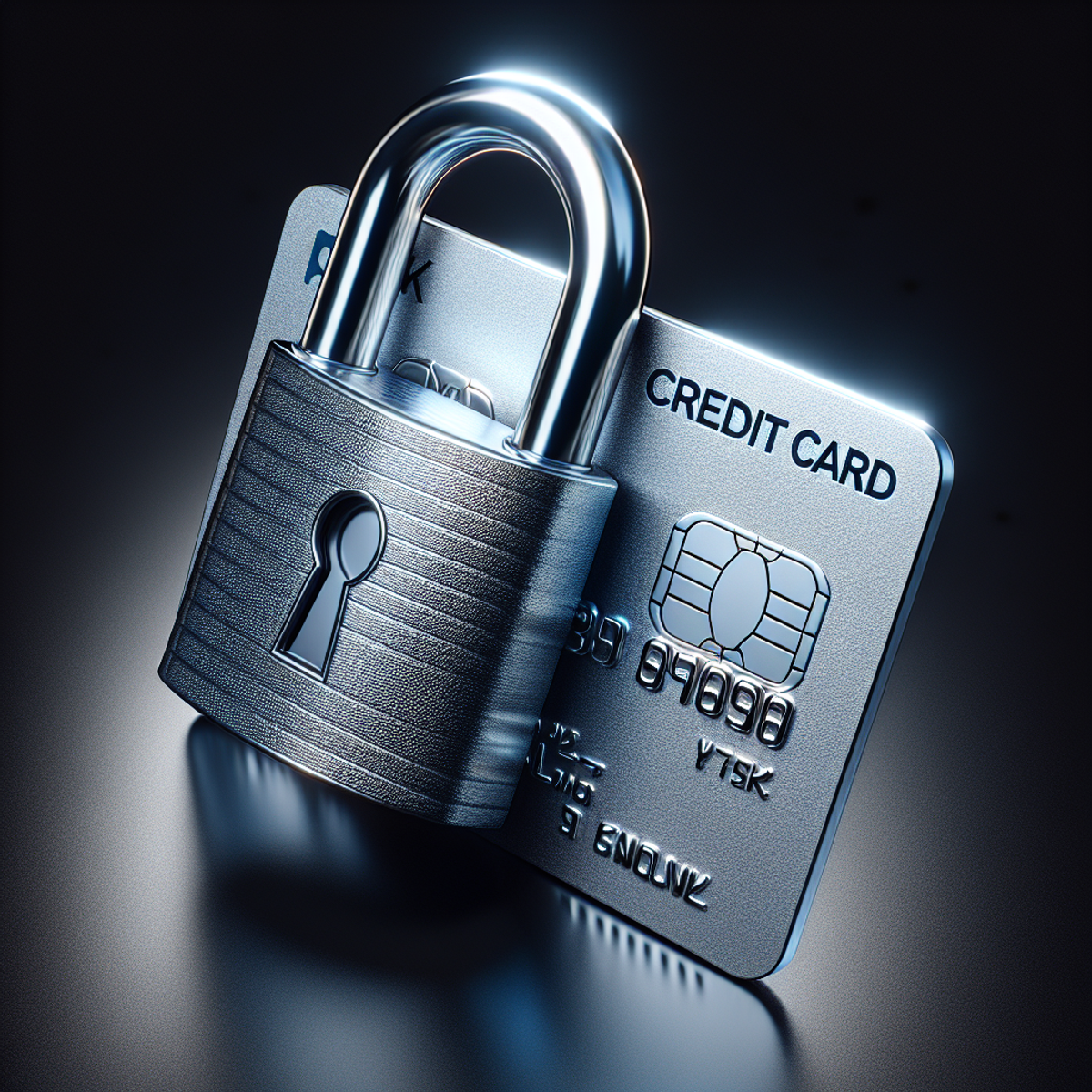
2. Strengthening Your Defense Against Credit Card Fraud
Strengthening your defense against credit card fraud involves a proactive approach to safeguard your financial information. Here are essential credit card security tips that can bolster your security measures:
Use Strong Passwords
Crafting a strong password is the first line of defense for your online accounts. Here’s how you can create one:
- Incorporate a mix of uppercase and lowercase letters, numbers, and special characters.
- Avoid using easily guessable information like birthdays or common words.
- Consider password managers to generate and store complex passwords for you.
Enable Two-Factor Authentication (2FA)
Two-factor authentication adds an extra layer of security beyond just the password. Here’s why you should enable it:
- With 2FA, access to accounts requires not only something you know (your password) but also something you have (like a mobile device).
- Opt for app-based authenticators over SMS when possible for higher security.
Secure Payment Methods
Employ secure payment methods such as contactless payments with services like Apple Pay or Google Pay, which use tokenization for transactions. Here are some options:
- American Express, among other major credit card issuers, supports contactless payments that shield your card details from merchants.
- Virtual credit cards can also be used for online shopping, providing a unique number for each transaction.
Implementing these practices enhances your personal credit card security framework. Still, technology plays an equally critical role in fraud prevention.
Leveraging AI and Machine Learning
Financial institutions employ sophisticated AI algorithms to analyze spending patterns and flag unusual transactions. Machine learning systems continuously evolve by ingesting vast amounts of transaction data, enhancing their ability to detect fraudulent activities.
AI Image Recognition
Advanced AI image recognition technologies are now being integrated into fraud detection systems. This technology assists in verifying user identity during online transactions and can detect fake IDs or altered documents.
By integrating strong passwords and enabling two-factor authentication, you add critical barriers against unauthorized access. Capital One, along with other leading banks, offers resources to help customers set up these features easily. Adopting secure payment methods further minimizes risk exposure during transactions.
With advancements in AI and machine learning, credit card companies are ever more equipped to spot and stop fraud before it affects consumers.
By combining personal vigilance with cutting-edge technology, you can significantly reduce the likelihood of falling victim to credit card fraud. As the fight against cybercrime continues to evolve, so must our strategies for protecting sensitive financial information.
Maintaining robust protection mechanisms is an ongoing process that requires attention and adaptation to new threats as they emerge. Stay informed on the latest security developments and ensure that you regularly update your defensive measures accordingly.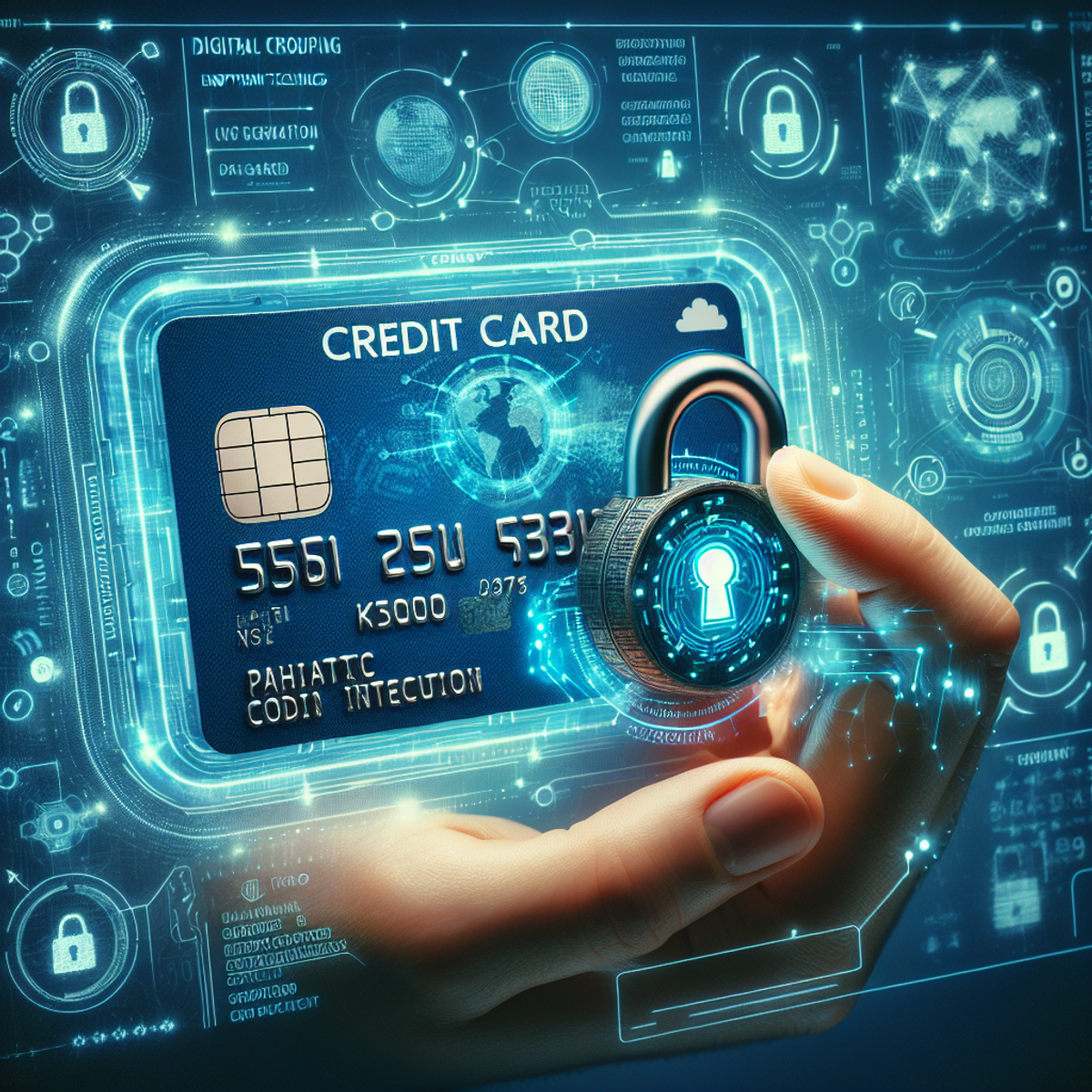
3. The Role of Technology in Credit Card Fraud Protection
Technological advancements have significantly changed the landscape of credit card fraud detection. Notably, Artificial Intelligence (AI) and machine learning are at the forefront of this transformation, providing innovative solutions to counteract credit card fraud effectively.
AI and Machine Learning in Credit Card Fraud Detection
AI and machine learning technologies have revolutionized the way financial institutions detect and prevent fraud. These technologies analyze patterns, behaviors, and anomalies to identify potential fraudulent activities.
Pattern Recognition
Machine learning algorithms can rapidly analyze millions of transactions to identify patterns that humans may overlook. By recognizing these patterns, the technology can predict future fraudulent transactions and stop them before they occur.
Behavior Analysis
Behavioral analysis is another area where AI excels. Machine learning algorithms can learn a user’s spending habits over time. Any deviation from this ‘normal’ behavior can trigger an alert for possible fraud.
For instance, if you usually use your credit card for groceries and utility bills but suddenly start making high-value purchases at luxury stores, AI systems can flag this as potential fraud.
Anomaly Detection
AI can also spot anomalies that might indicate fraudulent activity. This could be anything from multiple transactions happening rapidly after one another, transactions from unusual locations, or unusually large purchases.
These advanced detection methods are much faster and more accurate than traditional manual checks. They enable real-time fraud detection and prevention, thereby minimizing potential losses.
Benefits of AI-Powered Fraud Detection
The use of AI and machine learning in fraud detection offers numerous benefits:
- Real-Time Fraud Detection: AI systems can analyze transactions in real-time, allowing for immediate action against potential threats.
- Improved Accuracy: By analyzing vast amounts of data quickly, AI reduces the likelihood of false positives — legitimate transactions flagged as fraudulent.
- Adaptability: Machine learning algorithms learn and adapt over time as they process more data. This adaptability makes them effective against ever-evolving fraud tactics.
- Customer Experience: AI helps to provide a seamless customer experience by reducing the number of legitimate transactions incorrectly flagged as fraud.
AI Image Recognition
AI image recognition technology is another tool in the fight against credit card fraud. This technology can identify and verify users based on biometric features such as facial or fingerprint recognition.
Not only does this add an extra layer of security, but it also simplifies the authentication process for users. They no longer need to remember complex passwords or PINs — they can verify their identity using their unique biometric features.
Embracing Technology for Credit Card Security
In our digital age, embracing technology is key to ensuring credit card security. From AI-powered fraud detection systems to biometric authentication methods, these tech-driven solutions offer robust protection against credit card fraud.
While the battle against credit card fraud is ongoing, these technological advancements are empowering consumers and financial institutions alike to stay one step ahead of fraudsters.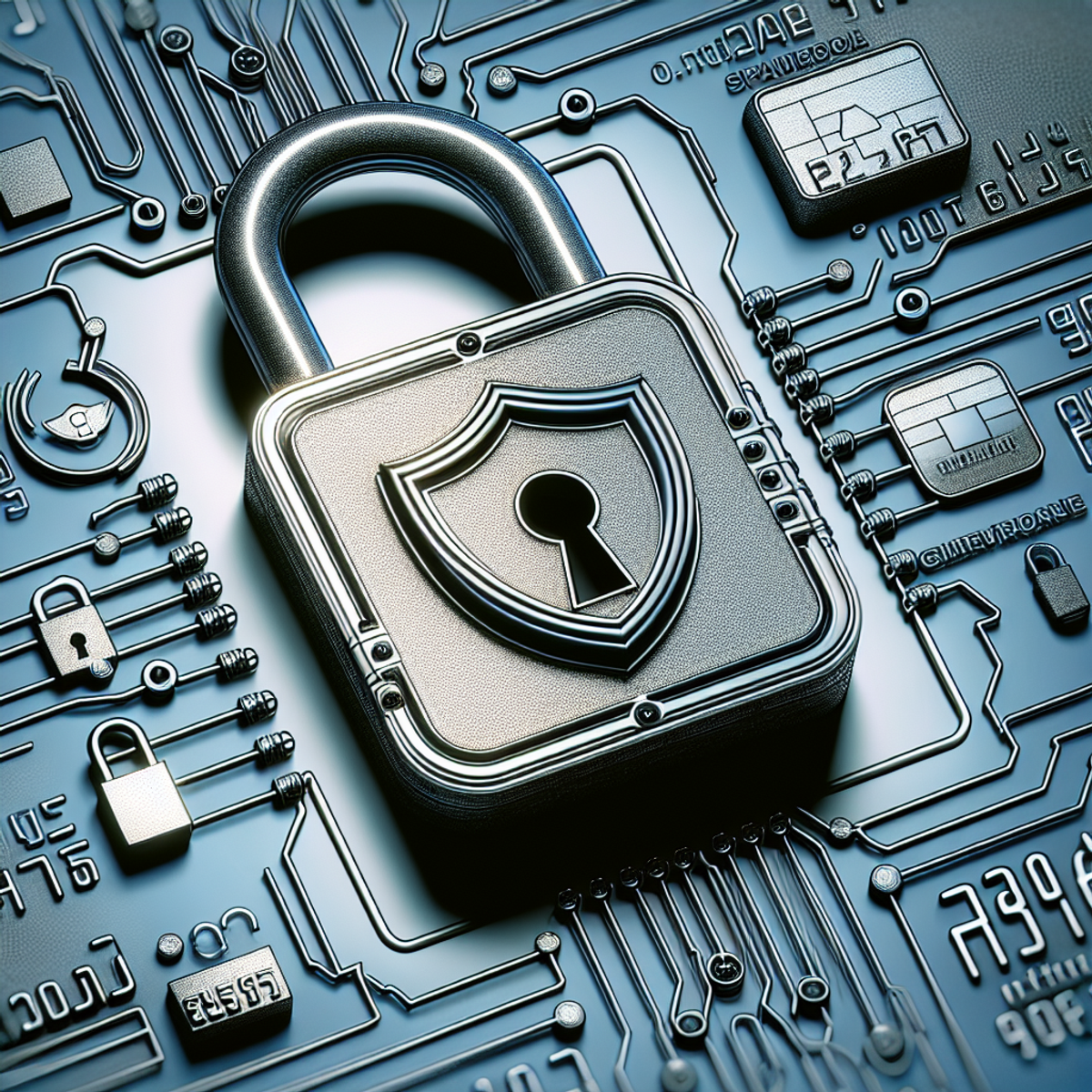
4. Top Credit Card Security Solutions for Comprehensive Fraud Protection
In the face of ever-evolving cyber threats, robust security solutions become an integral part of our digital lives. One solution that stands out in the realm of credit card security is the Aura Cybersecurity App.
Aura is not just another cybersecurity app; it’s a comprehensive platform that offers multi-layered protection against credit card fraud, scams, and identity theft. Let’s delve into what makes Aura a leader in this space.
Aura Cybersecurity App: Comprehensive Protection Against Credit Card Fraud
Aura takes a holistic approach to cybersecurity, offering a wide array of features to safeguard your financial data:
- Fast Credit Fraud Alerts: Aura provides real-time alerts for any suspicious activity on your credit cards, ensuring immediate action can be taken to prevent potential fraud.
- Leaked Password Scanner: This feature scans the Dark Web for any leaked personal information, allowing you to take proactive steps towards securing your accounts.
- Credit Monitoring Service: Aura’s service monitors bank, credit and investment accounts for any signs of fraud or suspicious activity.
The above features work in tandem with Aura’s cutting-edge AI technology to provide extensive security coverage. With such an all-encompassing approach, it comes as no surprise that Aura has received numerous accolades for its services.
Recognitions and Accolades
Aura’s commitment to providing top-notch cybersecurity solutions has not gone unnoticed. The app has been recognized by various industry bodies for its innovative approach and effective results:
- $1M Identity Theft Insurance: Aura offers a policy covering lost wages, phone bills, and other expenses related to identity theft, a testament to their confidence in the effectiveness of their services.
- Multiple Industry Awards: Aura has been the recipient of numerous awards in the cybersecurity sector, confirming its status as a leading provider in this field.
In the realm of credit card security, the Aura Cybersecurity App emerges as a powerful ally. By providing comprehensive protection against fraud and scams, it allows users to navigate their digital lives with confidence.
Credit Monitoring Services: An Additional Layer of Protection
While Aura provides robust security for your credit cards, considering additional credit monitoring services can further enhance your defense against fraud. These services provide alerts after identity theft, allowing you to take immediate action.
Some notable options include IdentityForce®, and CreditWise® from Capital One. Each offer unique features and pricing structures:
- IdentityForce® UltraSecure+Credit: This service monitors all three major credit bureaus (Experian, Equifax, TransUnion) and starts at $139.90/yr for individuals and $209/yr for families.
- CreditWise® from Capital One: A free service that helps monitor your credit and SSN on the Dark Web.
Even with advanced AI and Machine Learning capabilities at our disposal, the fight against credit card fraud is ongoing. However, with comprehensive solutions like Aura and additional credit monitoring services, we can navigate this digital landscape with greater peace of mind.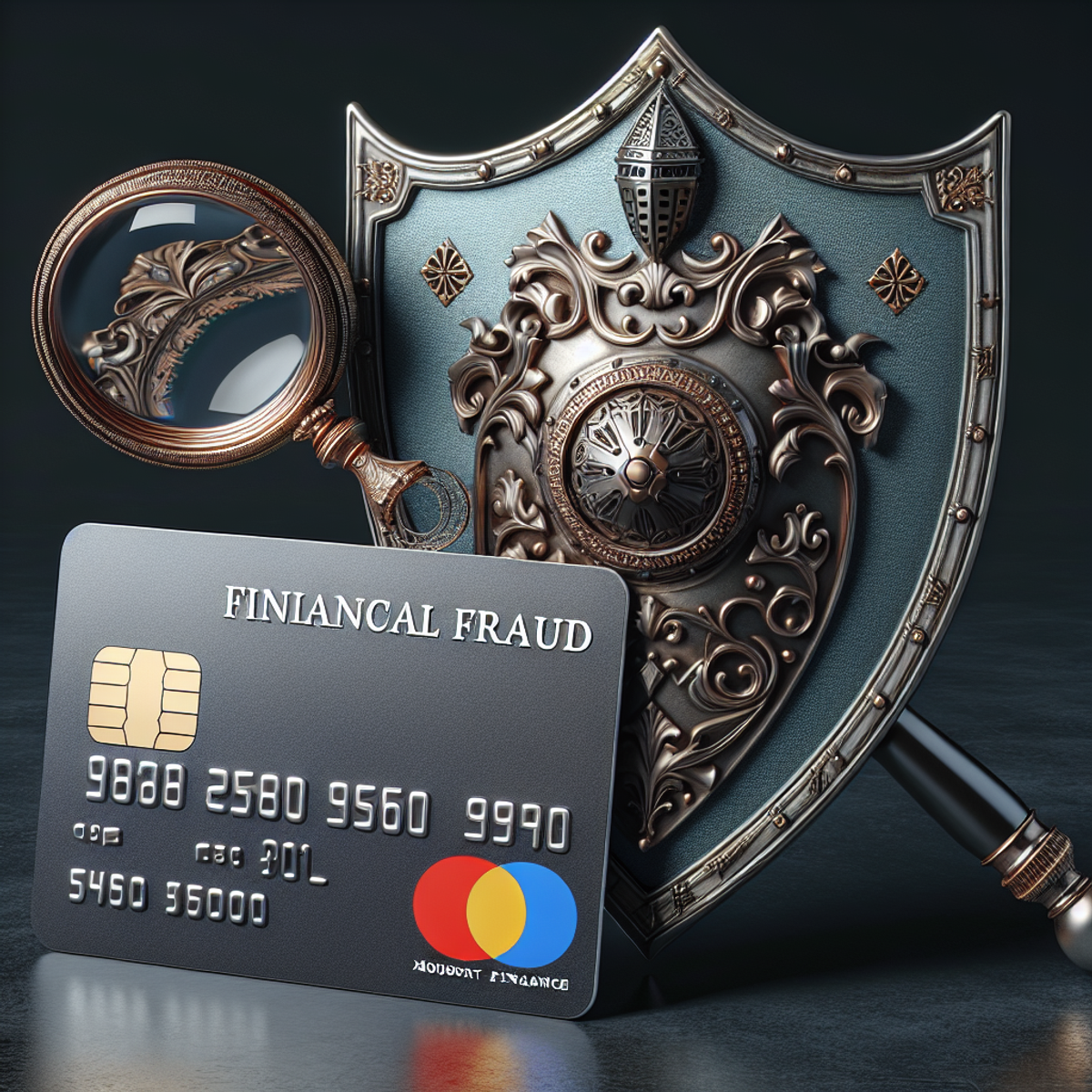
5. Taking Immediate Action When Fraud Occurs
Discovering a fraudulent transaction on your credit card can be distressing. Acting swiftly not only helps to minimize potential losses but also plays a crucial role in the recovery process.
Understanding Your Liability: Zero Fraud Liability Policies by Major Credit Card Networks
When it comes to reporting credit card fraud, understanding the protections provided by your credit card company is essential. Notably, major credit card networks such as Visa, Mastercard, and American Express offer zero fraud liability policies. These policies generally ensure that you are not held responsible for unauthorized transactions made with your credit card, provided you report them promptly.
- Visa’s Zero Liability Policy ensures you won’t be held responsible for unauthorized charges.
- Mastercard’s policy similarly protects against unauthorized transactions.
- With American Express’ fraud protection, you’re not liable for fraudulent purchases.
Steps to Take After Detecting Credit Card Fraud
Upon spotting an illegitimate charge, take the following actions immediately:
- Contact Your Credit Card Issuer: Notify your provider as soon as possible. Most issuers have a dedicated fraud helpline available 24/7. For instance, if you are a Bank of America customer, you can report fraudulent activity through their online account or by contacting customer service directly.
- Review Recent Transactions: Log into your online banking account to check for other suspicious activities.
- Follow Your Issuer’s Instructions: Your bank will guide you through the next steps, which may include closing the compromised account and getting a new card.
- File a Report with Law Enforcement: This may help in identity theft cases and is sometimes required by financial institutions for a thorough investigation.
- Monitor Your Account: Keep an eye on your statements for any further unusual activity.
- Update Your Online Credentials: Change passwords and PINs associated with your accounts.
The Importance of Reporting Swiftly
Reporting quickly cannot be overstressed — it affects your liability under the Fair Credit Billing Act (FCBA). If fraud is reported within two days, your maximum liability is $50. Waiting longer can increase your liability up to $500 or more.
Documentation Is Key
It’s vital to document all communications regarding the fraud:
- Keep records of all correspondences with your credit card issuer.
- Note down names of customer service representatives, dates, and times of conversations.
- Save email exchanges and confirmation numbers related to the fraud report.
Utilizing Technology in Reporting
Advancements in technology, including ai image recognition and machine learning algorithms, are now being implemented by financial institutions to detect and prevent fraud more efficiently. These technologies can help identify unusual patterns that might indicate fraudulent activities on your account.
Resources for Further Assistance
In addition to relying on bank support, there are external resources available:
- The Federal Trade Commission (FTC) offers guidance through its IdentityTheft.gov website.
- Financial advisors and consumer protection organizations can provide advice on protecting yourself from future fraud incidents.

6. Staying Vigilant: Regular Monitoring and Reviewing of Credit Activity
The Importance of Regularly Monitoring Your Credit Report
In the fight against credit card fraud, one of the most effective tools at your disposal is regular credit report monitoring. This proactive approach allows you to stay on top of your financial transactions and spot any unauthorized activities or discrepancies that could indicate fraud. Here’s a closer look at why this practice is crucial for maintaining your financial health.
Proactive Identification of Fraudulent Activities
By monitoring your credit reports frequently, you can identify fraudulent activities early on. This includes new accounts you didn’t open, credit inquiries from unfamiliar entities, and unexpected changes in account balances. Early detection is key to minimizing potential damage and resolving issues swiftly.
Ensuring Accurate Information
Your credit report is the foundation of your financial reputation. It’s essential that the information it contains is accurate. Regular checks ensure that mistakes are corrected, which can prevent negative impacts on your credit score.
Understanding Credit Utilization
Keeping tabs on your credit utilization ratio helps manage it effectively, which can have a significant impact on your overall credit score. A high ratio may indicate overreliance on credit and can be detrimental to your financial standing.
Detecting Signs of Identity Theft
Identity theft might not always be immediately obvious. By reviewing your credit report, you might notice signs such as accounts you don’t recognize, which could suggest someone else is using your identity to apply for credit.
Updates on Credit Score Improvements
As you implement sound financial practices, it’s rewarding to see the positive effects reflected in your credit score. Regular monitoring helps track these improvements over time.
Steps to Monitor Your Credit Report
To get started with monitoring your credit activity, consider these steps:
- Obtain Free Credit Reports: You’re entitled to one free credit report from each of the three major bureaus—Equifax, Experian, and TransUnion—every year through AnnualCreditReport.com.
- Sign Up for Credit Monitoring Services: Services like IdentityForce®, CreditWise® from Capital One, or Aura’s monitoring service can provide more frequent updates and alert you about changes in real-time.
- Set Transaction Alerts: Many card issuers offer transaction alerts for specific activities, adding another layer of security.
- Review Statements: Make it a habit to review all financial statements regularly for any unauthorized transactions.
- Consider a Credit Freeze or Lock: If suspicious activity arises, a credit freeze or lock can prevent new accounts from being opened in your name.
Advanced Monitoring with AI
The use of AI and machine learning algorithms in credit monitoring services has revolutionized how we protect our financial data. These technologies can analyze patterns and detect anomalies that may indicate fraudulent activity much faster than manual monitoring.
- AI-Powered Fraud Detection: Advanced systems assess risk levels by learning from a vast array of transaction data across different industries.
- Real-Time Alerts: Receive immediate notifications when suspicious activities are detected.
- Personalized Security Insights: AI can provide personalized recommendations based on your spending habits and risk profile.
By incorporating these advanced technologies into your regular monitoring routine, you significantly enhance the security surrounding your personal finance landscape.
With the right measures in place for credit report monitoring, including leveraging cutting-edge technology like AI, individuals gain valuable peace of mind knowing that they are taking important steps towards securing their financial future against potential threats like identity theft
Conclusion
Throughout this article, numerous strategies for credit card security and fraud prevention have been detailed with the goal of equipping readers to guard against malicious activities. By taking proactive measures such as strengthening passwords, enabling two-factor authentication, and leveraging technology like AI and machine learning, individuals can build a robust defense against credit card fraud.
The role of advanced solutions like the Aura Cybersecurity App cannot be overstated in providing another layer of protection. Coupled with an understanding of one’s liability, such as zero fraud liability policies offered by major credit card networks, users can navigate their financial transactions with greater confidence.
To maintain vigilance, it is critical to engage in regular monitoring and reviewing of credit activity. By keeping a close eye on credit reports and account statements, potential fraud can be detected early on, allowing for swift action.
Remember to take immediate steps when faced with fraud. Contact your credit card company, report to relevant authorities, and consider tools that help scan for personal information exposure.
Armed with knowledge and the right tools:
- Secure your financial information diligently.
- Stay informed about the latest security threats and solutions.
- Be vigilant in monitoring your financial accounts.
By adopting these practices, you significantly reduce your chances of being ensnared by fraudsters. Protecting yourself from fraud is not just a one-time effort but a continuous commitment to safe financial habits.
